Comprehensive Cost Cycle Savings
Purchased services agreements account for up to 50% of your organization’s non-labor spend. Purchased services is the part of a hospital’s non-labor spend that is contracted, purchased from, or outsourced to a third party vendor or consultant. Hiding within these agreements is the potential for major cost savings. Unfortunately, most cost analysis solutions are manual and produce limited results. Finding the right solution will improve operating efficiency and patient experience, while also, unlocking unparalleled cost savings for your hospital. SpendMend Purchased Services is the perfect solution.
The Recognized Leader in Healthcare
For over two decades, VIE Healthcare (a SpendMend Company) has been the recognized leader in healthcare costs, purchased services consulting, healthcare benchmarking, supply chain management, and performance improvement. Since the company’s founding, they have generated nearly $1 Billion in non-labor cost savings and revenue improvements for hospitals and health systems.
PRESS RELEASE
SpendMend Completes Acquisition of VIE Healthcare Consulting
PURCHASED SERVICES SOLUTIONS:
Cost Savings Strategy
Purchased services spend can comprise as much as 40-50% of a hospital’s non-labor costs and represents millions in annual cost savings potential. Leading hospitals and healthcare systems have developed strategies to monitor and manage the high volume of supplier contracts.
Healthcare IT
IT cost reduction is a priority for hospitals and health systems faced with increasingly complex proposals and vendor contracts relating to IT. Leading healthcare systems implement strategies to maximize margin improvement opportunities across the many different categories of their IT spend.
O.R. Optimization
The operating room accounts for up to 70% of a hospital’s revenue, up to 65% of its margins and 50% of a hospital’s costs. An efficient operating room enhances patient satisfaction and ensures quality patient care while significantly reducing waste.
Spend Analytics
The growing utility of hospital spend analytics presents an excellent opportunity for new cost-effective approaches. Health systems, supply chains, and patient care facilities investing in spend analytics, can optimize hospital costs and expenditures to improve profits and eradicate bad debt.
Data Categorization
SpendMend illuminates purchased services spending across your entire healthcare system by categorizing your total monthly spend across hundreds of categories to uncover savings, so you can reduce the overall cost of operations for your entire healthcare organization.
Benchmarking
Benchmarking is a comparison and measurement of a healthcare organization’s performance against other healthcare organizations. It provides leaders with insight to help them understand how their organization compares with similar organizations that provide the same services.
COST OPTIMIZATION SOLUTIONS:
Physician Preference Items
Physician preference items (PPIs) are often comprised of the most expensive purchased services ordered by hospitals and can have a negative impact on your hospital’s operating margins. Successful healthcare organizations know how to optimize the purchasing process for every PPI product.
Capital Equipment
IT cost reduction is a priority for hospitals and health systems faced with increasingly complex proposals and vendor contracts relating to IT. Leading healthcare systems implement strategies to maximize margin improvement opportunities across the many different categories of their IT spend.
Supply Chain Consulting
Supply chain management for hospitals regularly requires expertise and experience. Health systems depend on top supply chain services for medical device procurement, shipment needs, and vendor relationships. With the right supply chain services, healthcare providers can develop a competitive advantage.
Healthcare analytics
Healthcare analytics and data management are key areas that have benefited from the recent wave of automation technology solutions in healthcare. Improved data accuracy, better monitoring and evaluation, and overall efficiency are some of the advancements brought about with automation.
DATA SHEET
Physician Preference Items – A Cost Saving Strategy For Your Hospital
Purchased Services & Cost Optimization Features:
Advisory Services
Strategic cost advisory services to the C-suite and supply chain
Contracting Strategy
Creation of a direct contracting strategy with major costs savings opportunities
Expert Advice
Training and mentorship for key personnel to make better purchasing decisions
Comprehensive Plan
Development of a comprehensive 2-Year strategic cost-savings plan
End-to-End Engagement
Engagement throughout the entire organization in a cost strategy
Ongoing Support
Assistance and support in the execution of your strategic buying Initiatives











